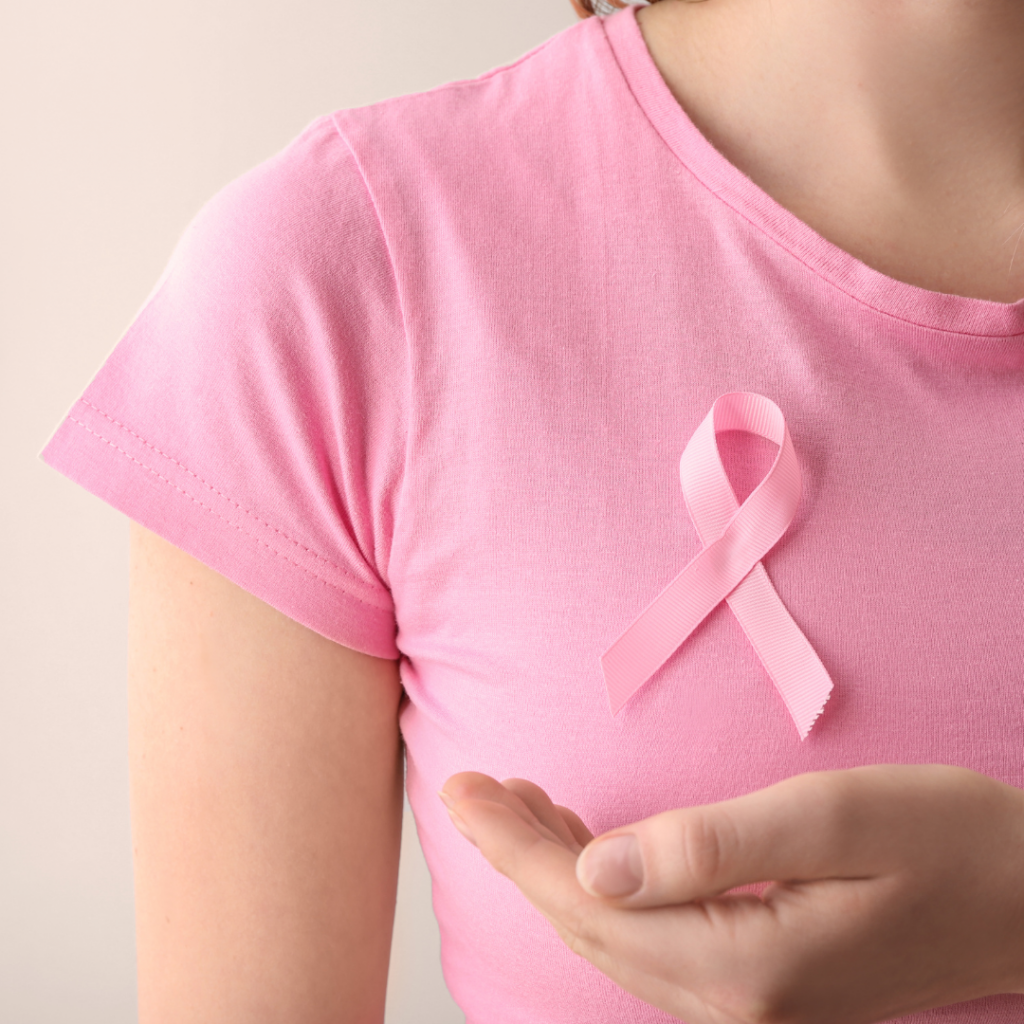Breast cancer is a malignant tumour that develops in the breast and can spread to other parts of the body.
Other names for breast cancer include breast carcinoma, mammary carcinoma or cancer or the scientific name of the specific cancer, for example duct carcinoma.
Not all lumps or tumours of the breast are cancer. Most lumps or tumours of the breast are benign, but separating cancer from benign lumps requires medical examination.
Breast cancer starts in the breast, but can spread to other parts of the body under certain circumstances. When cancer spreads it can cause destruction of the organs that it spreads to and illness due to a burden on the body’s resources, like the immune system. Cancer is generally harder to treat after it has spread to other parts of the body.
Breast cancer is more common in women, but men can also get breast cancer. A family history of breast cancer is a strong risk factor; the closer the relative, the higher the risk. Breast cancer is more common in older age groups, with the number of cases rising after 50 years of age. Young women can also get breast cancer; being younger than 40 does not exclude being able to get breast cancer.
Self examination: finding a lump in the breast, a nipple discharge outside of pregnancy, puckering of the skin or nipple retraction. Examination by health care worker. Mammograms: this is a special x-ray of the breast that can pick up cancers. If there is suspicion of a cancer, the area will be sampled with a biopsy to confirm the diagnosis.
Self examination should be done as routine from an early age. Screening with mammography should ideally begin with a baseline study in the late thirties, and continuing according to individual risk (to be discussed with your health care provider). How is breast cancer treated? Treatment may include all or combinations of the following types of treatment: Surgery to cut out the breast cancer (the whole breast does not necessarily get removed). Chemotherapy to kill the cancer cells in cases where there is risk of spread. Hormonal therapy to slow down cancer growth. Radiotherapy in cases that require it.

Every breast cancer is different, and every individual who suffers from breast cancer is different. The long-term outcome for any individual with breast cancer will depend on the aggressiveness of the cancer, the amount of spread to glands and other sites, the response of the cancer to treatment, and the fitness of the individual. Most breast cancers are cared for or managed well for many years with appropriate therapy and the key to long- term health is in early detection of the cancer.
Yes, depending on the tumour and the stage. The key factors are: Early detection and diagnosis of the cancer;Appropriate treatment by the team of health professionals. Key points to remember ;Breast cancer is best treated when small/early stage; To find small breast cancers requires active surveillance; by the individual, the health care provider, and using technology in the form of mammograms; Contact your health care provider to form a plan for ongoing breast health and screening.
Richmond, Johannesburg,
2092